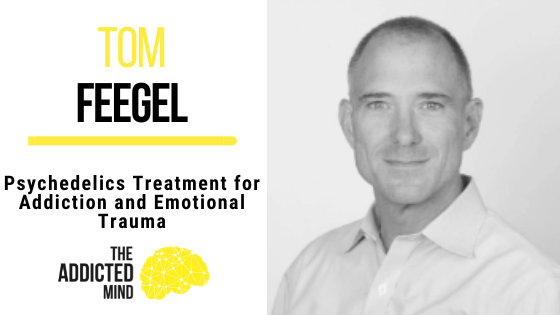A growing number of addicts recover, relapse – and they relapse hard. There’s an epidemic of overdose as more and more people are sick and dying faster. Is there a way to do better than the conventional recovery industry?
According to a 2021 report from the Centers for Disease Control, over 100,000 people died of chemical overdoses in one year.
This is not just an entrepreneurial, academic exercise.
It is now a moral obligation.
A New Treatment for a New Beginning
13 years ago, Tom Feegel witnessed how his family member who was struggling with addiction got treated using a medicinal plant called Iboga.
Within 12 hours, the plant removed the person’s physical cravings, the sense of dependency, and the desire to use them for the first time in years.
However, it happened in a place with no medical infrastructure, no psychotherapy, no nutritional guidance, no preparation, and no aftercare. And so, he made a promise to build a place that could provide all those – Beond Treatment.
What is Ibogaine?
Ibogaine is a psychedelic medicine derived from a plant called Tabernanthe iboga that comes from a shrub from Gabon, West Africa.
Iboga is originally used ceremonially and has been used since time immemorial in Gabon, specifically for initiation in the transitions of life. Iboga helps people clean up their past and separate them from their past. They can see it but they don’t get attached to it and they don’t bring the suffering, pain, trauma, and mistakes into their next life transition. Iboga has also been used underground since the 70s as a way of interrupting opiate dependence.
Iboga is the natural derivative of this plant, specifically the bark of the root. Ibogaine is in the form of refined hydrochloride that’s purified and testable for its purity. It gives you some sort of 12-hour movie of your past while removing physical cravings, the sense of dependency, and the desire to use.
Psychedelics + Conventional Therapy
After someone takes Ibogaine, the first step is they don’t feel any craving. Iboga is metabolized by the liver and it creates another chemical called noribogaine, which stays in the body for somewhere around 90 days or longer. This gives the individual a sense of interruption of the dependency.
The second step is they want to change. Now, they want to heal and have a sense of purpose and renewal.
Then the third step is to surround the person with the conventional tools of recovery in psychotherapy. This includes preparing a plan of action for changing those behaviors to sustain recovery. Ibogaine helps amplify that motivation and it eliminates withdrawal symptoms.
If you want to learn more about the innovation of psychedelics in recovery, check out https://theaddictedmind.com/192

